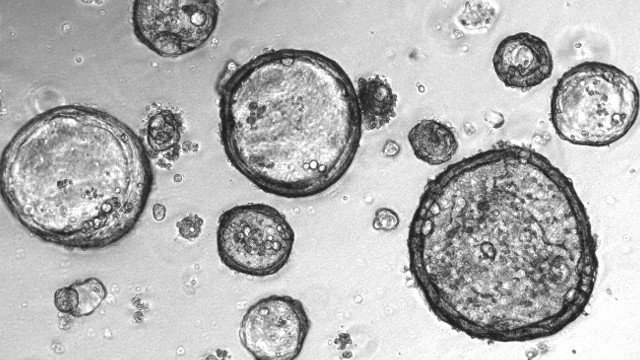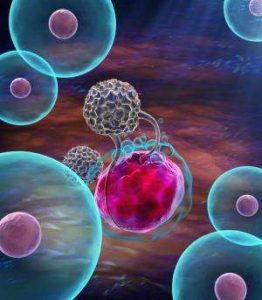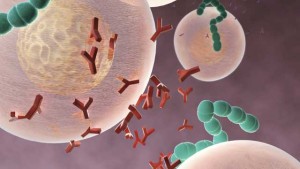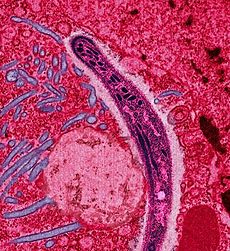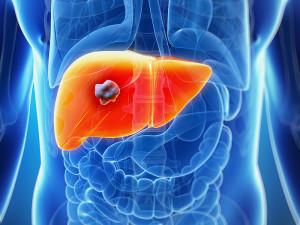Cancer organoids to model therapy response
Cancer organoids are miniature, three-dimensional cell culture models that can be made from primary patient tumors and studied in the laboratory. Vlachogiannis et al. asked whether such “tumor-in-a-dish” approaches can be used to predict drug responses in the clinic. They generated a live organoid biobank from patients with metastatic gastrointestinal cancer who had previously been enrolled in phase I or II clinical trials. This allowed the authors to compare organoid drug responses with how the patient actually responded in the clinic. Encouragingly, the organoids had similar molecular profiles to those of the patient tumor, reinforcing their value as a platform for drug screening and development.
Abstract
Patient-derived organoids (PDOs) have recently emerged as robust preclinical models; however, their potential to predict clinical outcomes in patients has remained unclear. We report on a living biobank of PDOs from metastatic, heavily pretreated colorectal and gastroesophageal cancer patients recruited in phase 1/2 clinical trials. Phenotypic and genotypic profiling of PDOs showed a high degree of similarity to the original patient tumors. Molecular profiling of tumor organoids was matched to drug-screening results, suggesting that PDOs could complement existing approaches in defining cancer vulnerabilities and improving treatment responses. We compared responses to anticancer agents ex vivo in organoids and PDO-based orthotopic mouse tumor xenograft models with the responses of the patients in clinical trials. Our data suggest that PDOs can recapitulate patient responses in the clinic and could be implemented in personalized medicine programs.

